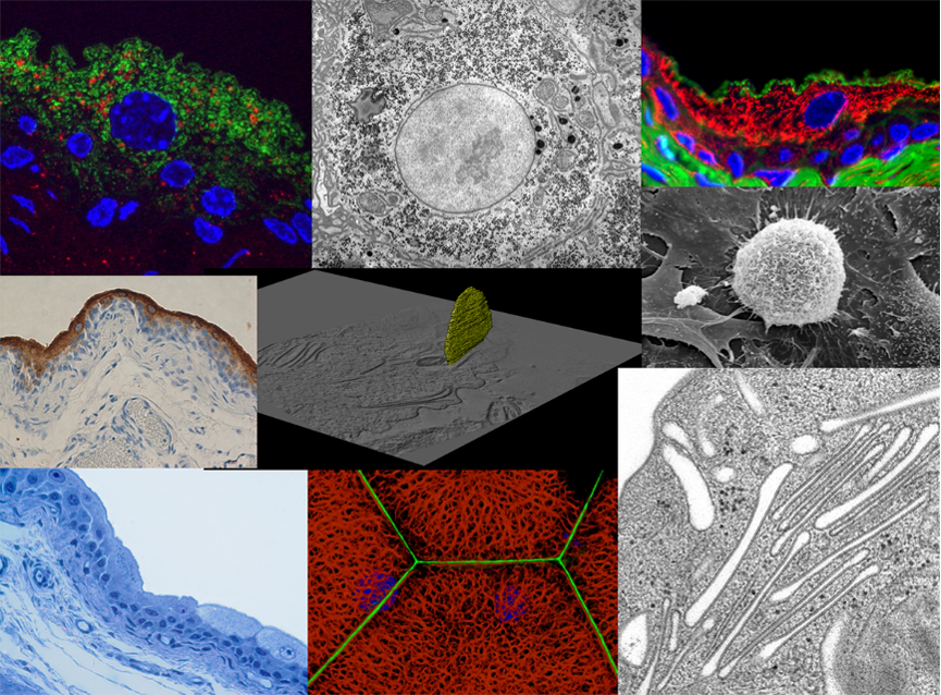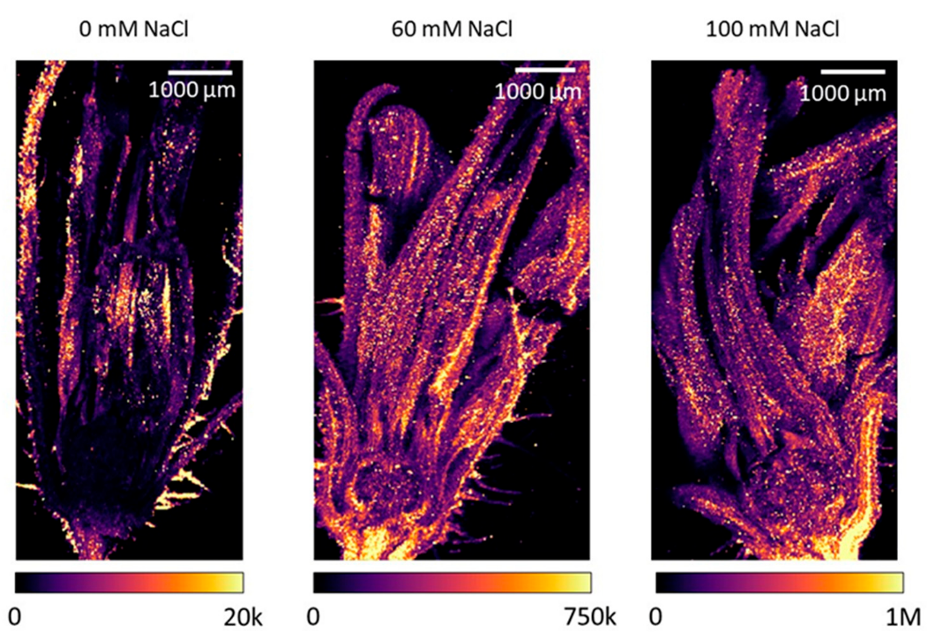SLOVENIA
SiMBION NODE
The Slovenian national consortium SiMBION consists of 15 infrastructure centres and institutional departments. It is committed to provide part of its existing bioimaging capacities to external users, including access to imaging infrastructure, imaging methodology, sample preparation, advisory help in project planning, as well as training courses for Euro-BioImaging users. The consortium partners are traditionally providing part of their research infrastructure capacities to external national and international users within numerous national and international projects, individual collaboration and commercial contracts, including Transnational Access (TNA) programme of the EU.
Offered Technologies:
- Laser scanning confocal microscopy (LSCM/CLSM)
- Total internal reflection fluorescence microscopy (TIRF)
- Fluorescence Recovery after Photobleaching (FRAP)
- TEM of chemical fixed samples (TEM)
- TEM of cryo-immobilized samples (TEM cryo samples)*
- Immuno-gold EM on thawed cryo-sections (Tokuyasu-EM)
- Immuno-gold EM on resin sections (resin-EM)
- Scanning Electron Microscopy (SEM)
- micro-MRI (Field >= 7 T)(HF)
- micro-MRI (Field <7 T)(LF)
- ex-vivo micro-CT
- Mass spectrometry-based imaging - bio (MSI - bio)*
- Mass spectrometry-based imaging - med (MSI - med)*



Specialties and expertise of the Node
The consortium SiMBION was formed by merging the majority of the existing national research infrastructure resources in the field of bioimaging. The existing infrastructure, developed in the last decades within the hosting institutions by different institutional initiatives and funds, is distributed among several constitutive partners. In these circumstances, a multi-sited Node provides a framework that could at present efficiently merge this distributed research infrastructure and incorporate eventual dedicated Euro-Bioimaging infrastructure investments in the future. The existing collaborative workflows between the members of the SiMBION consortium, efficiently exploit the existing state-of-the art bioimaging techniques and the available supporting laboratories and bioimaging techniques available in a very small geographical area, providing excellent conditions for the execution of complex research projects and multimodal imaging procedures. This proposed structure and the workflows can only be provided in the form of multi-sited node.
The existing collaborative workflows between the members of the SiMBION consortium, efficiently exploit the existing state-of-the art bioimaging techniques and the available supporting laboratories and bioimaging techniques available in a very small geographical area, providing excellent conditions for the execution of complex research projects and multimodal imaging procedures. This proposed structure and the workflows can only be provided in the form of multi-sited node.
Additional Services offered by the Node
- Instruments
- Methodological setup (e.g. design of study protocol and standard operation procedures)
- Technical assistance to run instrument
- Probe preparation
- Cell and Tissue Culture facilities
- Animal facilities
- Wet lab space
- Data processing and analysis
- Training seminar rooms
- Housing facilities
- Regulatory affairs management service
- Biobanking, biological material storage and processing
- Training in infrastructure use
- Server space
- Training workstations
- Biological material storage and processing
- Training in techniques for optical clearing of biological samples
- Sample preparation support, including latest instrumentation for cryo-fixation using High Pressure Freezing
Instrument highlights
Microanalytical centre of Jožef Stefan Institute is providing Transnational Access to ion-beam based state-of-the-art techniques for tissue chemical (elemental and molecular) imaging within EU H2020 project No. 824096 RADIATE (2019-2022). Up to 20% of total infrastructure capacity of 4000 beam hours unit of TNA access, beam hour) annually are allowed for TNA access within this EU project. From 300 to 600 beam hours (annually are provided to users of ion beams, of which 70 % are applied for chemical imaging of biological tissue. Proposal submission and evaluation are centralized (https://www.ionbeamcenters.eu/radiate/radiate-transnational-access/application-for-transnational-access/).
At the National Institute of Chemistry, a state-of-the-art facility features a new Laser Ablation Inductively Coupled Plasma Mass Spectrometry (LA-ICP-(TOF)MS), providing high-resolution elemental imaging of biomaterials for most elements of the periodic table, and localization, sizing, and counting of metal nanoparticles in tissues.
Due to a linear dynamic range of up to 10 orders of magnitude, and detection limits of 10’s of parts per billion, the technique can address scientific problems in many disciplines. The technique has been applied in the field of metal-labeled antibodies designed to target specific antigens, metalloproteins, drug penetration in healthy and tumor tissues, elemental and nanoparticle uptake by plants, animals, and single cells.
The Node also recently acquired a new EM ICE High Pressure Freezer, which allows for a superior cryo-fixation of the specimen enabling better quality results to be obtained. The system enables fast and reproducible vitrification of tissues, cultured cells and suspensions, which can be subsequently prepared for a wide range of EM applications: cryo-EM of vitreous sections (CEMOVIS), volume EM studies by freeze substitution (3D-EM tomography, FIB-SEM, SFB-SEM), ultrastructural immunohistochemistry, freeze fracturing and corelative light and electron microscopy (CLEM).
Contact details
Node contact person:
Primož Pelicon
primoz.pelicon@ijs.si
Esther Punzon Quijorna
esther.punzon-quijorna@ijs.si
Find out more details about available technologies and services on the Node website https://simbion.mf.uni-lj.si/en/home-2/